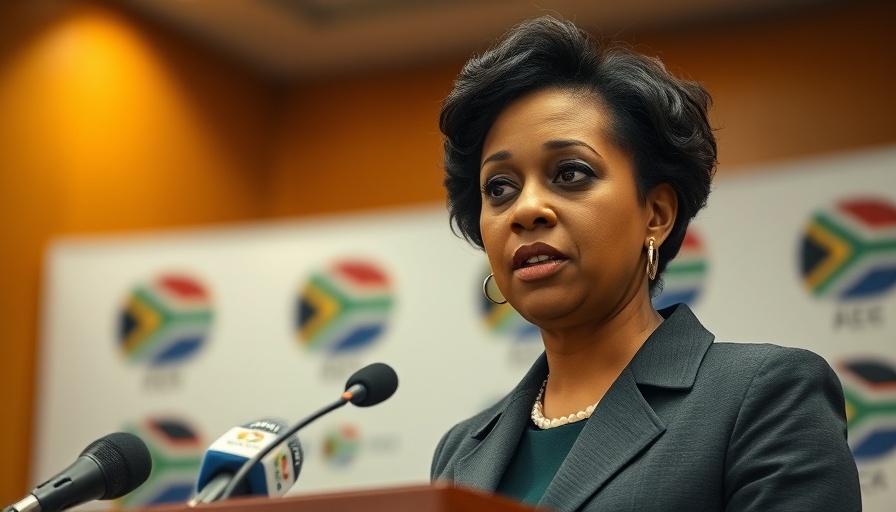
State Security Agency’s Firm Response: A Closer Look
The ongoing tension within South African political corridors has taken a new twist with the State Security Agency (SSA) vehemently denying claims related to an alleged operation dubbed 'Sibonkolo'. The SSA characterizes the accusations as diversionary tactics intended to derail the agency's ongoing reform efforts. Such claims surfaced in a recent Sunday newspaper report which suggested that Minister in the Presidency, Khumbudzo Ntshavheni, was misusing state resources to bolster her political and personal aspirations.
Political Turmoil and Accountability
This denial by the SSA is significant in light of South Africa's political backdrop, which has been punctuated by issues of corruption, particularly within government structures. The SSA's assertion that it adheres to strict operational directives and that oversight mechanisms are in place is crucial for restoring public trust. These claims of mismanagement resonate with broader themes of accountability, especially as the nation gears up for the 2024 general elections where voter turnout and electoral integrity are of utmost importance.
The Implications of Political Realignment in South Africa
As the political landscape shifts with the potential rise of opposition parties like the Democratic Alliance (DA) and the Economic Freedom Fighters (EFF), allegations like those surrounding 'Sibonkolo' reflect deeper issues of party dynamics. The ongoing coalition government comprising various factions, including the African National Congress (ANC) and its allies, underscores the complexity of governance in South Africa today. Political realignment and the quest for power are fostering an atmosphere where accusations can be both a weapon and a defense mechanism.
Public Sector Reform: A Pillar for Trust
The essence of the SSA's statement underscores the critical need for public sector reform in South Africa. The public has witnessed multiple scandals, particularly those involving state capture, which tap into concerns about executive accountability and parliamentary oversight. This situation invites discussions on broader reforms, including judicial independence and anti-corruption measures, crucial for enhancing the public's confidence in governmental processes.
A Broader Perspective on Governance and Reform
As is often the case, an event like this rings alarm bells about the potential for growing discontent among citizens frustrated by repeated instances of alleged maladministration. The implications for social grants and services deliverables under government scrutiny could be profound, especially as issues like youth unemployment and income inequality remain rampant in South Africa. This brings to the forefront the necessity for ongoing dialogue about reforms surrounding economic policy, land reform, and education.
Call to Engage: The Importance of Information
As citizens, staying informed about political machinations is more critical than ever. By actively engaging with credible sources and seeking to understand the deeper implications of such allegations, the electorate can play a vital role in demanding transparency and accountability. The upcoming 2024 general elections present a vital juncture for South Africans to voice their concerns and preferences amid a turbulent political climate.
 Add Row
Add Row  Add
Add 




Write A Comment